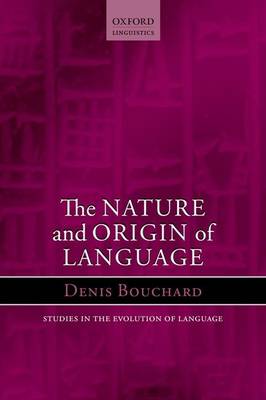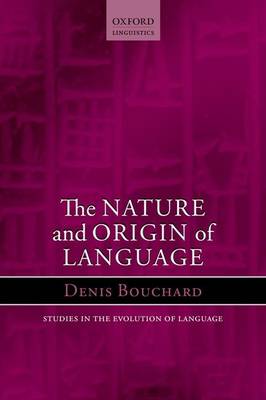
- Afhalen na 1 uur in een winkel met voorraad
- Gratis thuislevering in België vanaf € 30
- Ruim aanbod met 7 miljoen producten
- Afhalen na 1 uur in een winkel met voorraad
- Gratis thuislevering in België vanaf € 30
- Ruim aanbod met 7 miljoen producten
Zoeken
Omschrijving
This book looks at how the human brain got the capacity for language and how language then evolved. Its four parts are concerned with different views on the emergence of language, with what language is, how it evolved in the human brain, and finally how this process led to the properties of language. Part I considers the main approaches to the subject and how far language evolved culturally or genetically. Part II argues that language is a system of signs and considers how these elements first came together in the brain. Part III examines the evidence for brain mechanisms to allow the formation of signs. Part IV shows how the book's explanation of language origins and evolution is not only consistent with the complex properties of languages but provides the basis for a theory of syntax that offers insights into the learnability of language and to the nature of constructions that have defied decades of linguistic analysis, including including subject-verb inversion in questions, existential constructions, and long-distance dependencies.
Specificaties
Betrokkenen
- Auteur(s):
- Uitgeverij:
Inhoud
- Aantal bladzijden:
- 404
- Taal:
- Engels
- Reeks:
- Reeksnummer:
- nr. 18
Eigenschappen
- Productcode (EAN):
- 9780199681624
- Verschijningsdatum:
- 19/11/2013
- Uitvoering:
- Hardcover
- Formaat:
- Genaaid
- Afmetingen:
- 157 mm x 234 mm
- Gewicht:
- 771 g

Alleen bij Standaard Boekhandel
+ 351 punten op je klantenkaart van Standaard Boekhandel
Beoordelingen
We publiceren alleen reviews die voldoen aan de voorwaarden voor reviews. Bekijk onze voorwaarden voor reviews.











